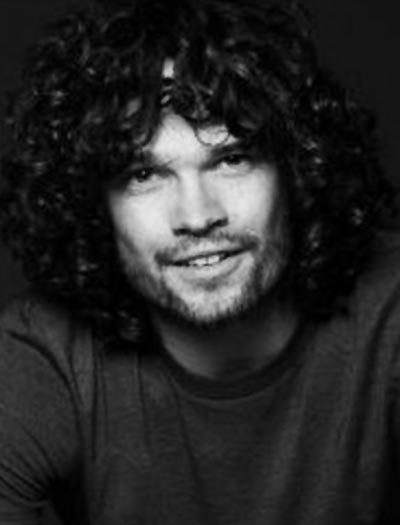



For as long as I can remember I have loved stories, whether reading, watching, or playing them. Using my imagination to create worlds and characters is a lot of fun. I realised I wanted to do it for a living when I was very young, though I didn’t fully appreciate the huge variety of crafts I might write for until I lived with film students at university. Until then I had always written in prose, but university experiences prompted me to try writing for screen and comics.
In writing for screen, books and comics, I couldn’t pick one single writer who spans all crafts I work in.
In books, one who really stands out is the late Sir Terry Pratchett. The Discworld novels do an excellent job at holding up a mirror to our world. I really admire what Sir Terry Pratchett achieved in imaginative scope and world building.
In screen, I love the work of Guillermo del Toro and Terry Gilliam. The way these writer-directors use film to explore philosophical questions, with imagination and beautiful aesthetic style, is a big inspiration. They achieve this level of originality and intelligent storytelling, while also being entertaining and usually avoiding falling into being pretentious. This is a very difficult balance to achieve.
In comics, the work of fellow Guild member Antony Johnston had a big influence on the way I think and write for this craft. He does a lot of work to share his knowledge and experience, and his comic script templates were instrumental in getting me started. Equally, the comics creator Karrie Fransman has my utmost admiration. Karrie mentored me while I wrote A Castle in England and her passion and expertise in visual storytelling, as well as her warmth and ability to share this with others, was pivotal in my development as a writer.
My first credit was in screenwriting. I was commissioned to write a short film Four Walls for a local government initiative highlighting anti-social behaviour on council estates. Importantly, this first credit enabled me to join WGGB as a Full Member, which was a huge turning point in my career.
I then had my first book published, Dead Men’s Teeth, and first graphic novel, A Castle in England. Recently, I made my directorial debut as screenwriter and co-director of a short film called Amputee. I also received my first games commission, credited as writer of The Gunslinger character class supplement for Dungeons and Dragons (5E).
In Dead Men’s Teeth, a short story collection that I wrote with the British Library, there is a short story called Quarantine. I am proud of the collection as a whole piece, but given that there are 10 stories in it, there are inevitably some I like more than others. Quarantine is one I am most proud of. I’m also very proud of A Castle in England, as my first graphic novel it was a huge challenge and steep learning curve, but one I thoroughly enjoyed. The project changed the way I think about storytelling.
Human beings are fascinating creatures, and the way they interact with each other and the world around them is a constant source of inspiration. This manifests itself in different ways – when I read a history book, watch the news, get on the Tube, or just open my eyes and ears. I always remind myself to take a mental step back from what is around me to better appreciate the beauty and poetry of human experience as the world trundles on.
With great difficulty! I find that if I’m not writing, or at least formulating ideas to use in stories, then I feel guilty. Most people work long hours at jobs they don’t particularly enjoy or want to do forever. I chose to be a writer, and though it is a constant struggle to keep living on the right side of the breadline, it is a privilege to be pursuing my dreams. That said, I love playing RPG videogames, meditating and listening to podcasts.
I have three short pieces of writing career advice:
Observe:
People are your subject matter, individually and collectively. Observe them and take note.
Write:
Try and write a little bit of something creative fairly frequently. Even if it is just one line for a larger piece. Don’t worry if it is good or not, just get some words on a page. Nobody will see your work until you are ready to show it, but you can’t do much with it while it is still in your head.
Learn to touch type:
Advice I was given by fellow writer and Guild member, Piers Beckley. It took me a while, but it was worth persevering. If you’re going to dedicate your life to typing words, it is much easier to do it quickly and by second nature. I used to get wrist ache from poor typing technique, especially when working on big documents, touch typing stopped that.
WGGB is my trade union and will always be there to ensure I get fair pay and credit for my work. Membership also gives me access to a network of industry professionals who can give me advice when I need it. Solitude is partly why I enjoy being a writer, but it is also why it can be difficult, so it is great to go to WGGB events and chat to other working writers about their craft. I find people take me far more seriously as a writer because I am part of WGGB.
Jamie Rhodes is a writer and director working in comics, books and screen. He is Eisner Award nominated for A Castle in England and supported by Arts Council England. In 2021, Jamie started his PhD in Creative Writing and Philosophy, researching the phenomenological experience of story immersion.
Follow Jamie on: